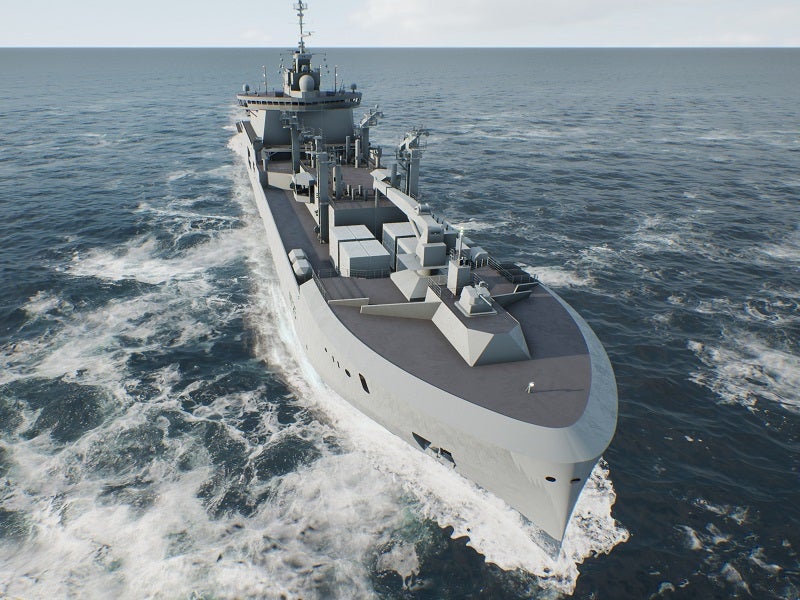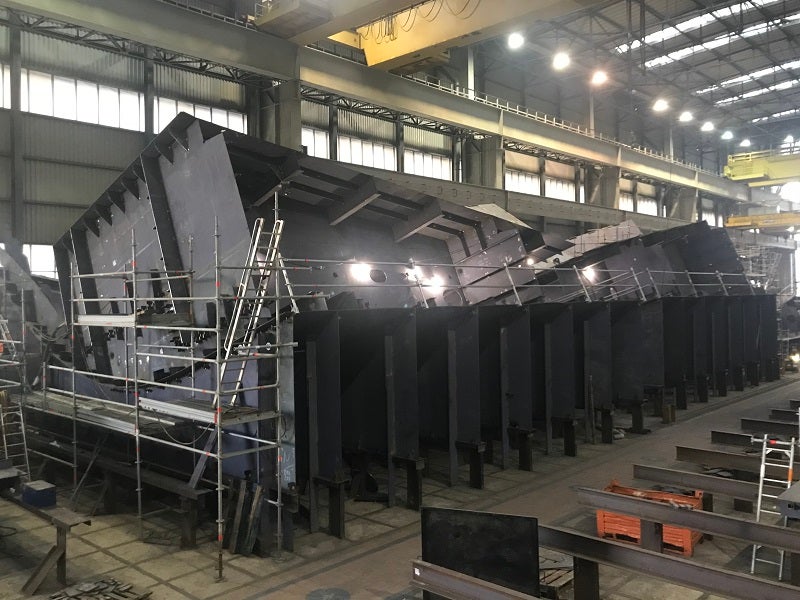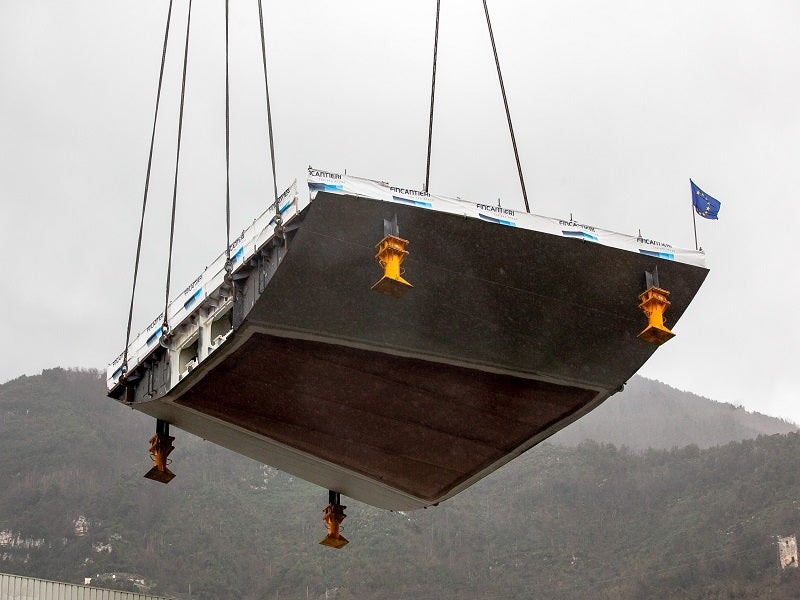Jacques Chevallier is a new class of logistic support ships (LSS) being developed by a consortium of Chantiers de l’Atlantique and Naval Group for the French Navy, as part of the Flotte Logistique (FLOTLOG) programme.
The four replenishment vessels will provide supplies to naval vessels that are located far from the mainland or French Navy support bases. The ships will provide long-term logistic support to naval vessels, including frigates, aircraft carriers and amphibious assault ships.
The LSS can perform refuelling at sea and supply lubricants, ammunition, spare parts, food, drinking water, specialist medical products, general equipment and other materials.
The ships will also provide medical support and assistance to distressed vessels, while other roles will include search-and-rescue, humanitarian aid and disaster relief.
Jacques Chevallier-class development details
The FLOTLOG programme for four fleet replenishment tankers or force supply vessels (bâtiment ravitailleur de force – BRF) is led by the Organisation for Joint Armament Co-Operation (OCCAR) on behalf of the French Defense Procurement Agency DGA and its Italian counterpart, La Direzione degli Armamenti Navali (NAVARM), under the French-Italian LSS programme.
A temporary consortium of Chantiers de l’Atlantique and Naval Group received a contract to build four supply vessels in January 2019.
First steel was cut for the lead vessel, Jacques Chevallier, at Fincantieri’s Castellammare di Stabia naval shipyard in Italy in May 2020. The keel-laying ceremony followed in February 2021.
The forward section of Jacques Chevallier was delivered to Chantiers de l’Atlantique at the Castellammare di Stabia shipyard, Naples, in November 2021.
The Jacques Chevallier LSS is expected to be launched in March 2022, with delivery scheduled for the fourth quarter (Q4) of 2022. The remaining three BRF vessels are expected to be delivered by 2029.
Jacques Chevallier-class LSS design and features
The French Navy’s future BRFs are based on the Italian Navy’s Vulcano-class LSS, designed by Fincantieri. Each ship will have an overall length of 194m, width of 27.6m, deadweight tonnage of 14,870t and freight volume of 13,000m³. The bow section of each ship will be 73.82m long, 27.6m wide and 20.6m high, with a weight of 3,000t.
With a full load displacement of 31,000t, the ships can accommodate a total of 190 personnel, comprising 130 crew members and 60 passengers. The LSS will be able to carry fuel for ships, jet fuel for aircraft, arms and ammunition, spare parts, food, waste disposal solutions, and workshops for repairs.
The vessels will feature provision stores, galleys and laundry solutions covering an area of 1,037m².
Navigation and other on-board systems
The Jacques Chevallier class vessels will be fitted with iXblue’s Phins navigation systems as well as the company’s Netans navigation data distribution and computation systems, which will allow the ships to operate in GNSS-denied situations.
The LSS will be equipped with two Van der Velden TIMON flap-type rudders and two Van der Velden COMMANDER Rotary Vane steering systems.
Performance of French Navy’s future supply vessels
The vessels will have a maximum speed of 19.8k and offer a range of 7,000nm. The total installed power capacity will be 24MW.
Contractors involved
Chantiers de l’Atlantique awarded a contract to Damen Marine Components (DMC) for supplying rudders and steering gear systems for the LSS vessels in January 2021.
ALMACO secured a contract for the delivery and installation of cold stores, galleys and laundry areas in January 2021.
In September 2020, Naval Group selected iXblue to supply navigation systems for the four French Navy future vessels.
Fincantieri was selected by Chantiers de l’Atlantique (CdA) for building the forward sections of the French LSS vessels in October 2019. The sections will be delivered between 2021 and 2027.
GE Power Conversion received a contract from Chantiers de l’Atlantique to provide propulsion systems for the four LSS vessels in 2020. The first MV7000 drives for the project passed their factory acceptance tests at GE Power Conversion’s factory in Nancy, France, in November 2021.




